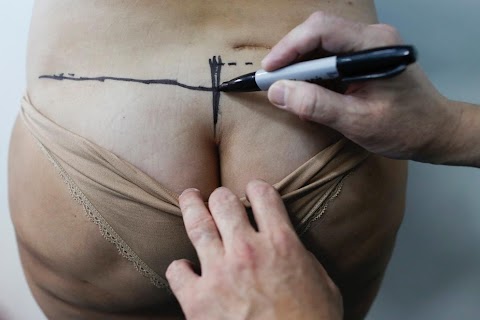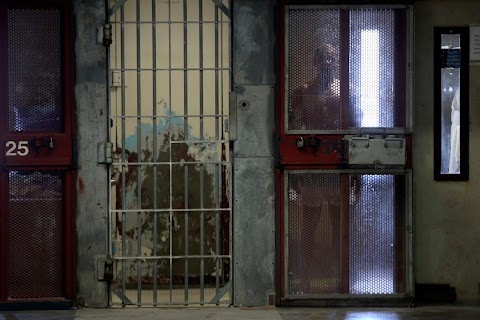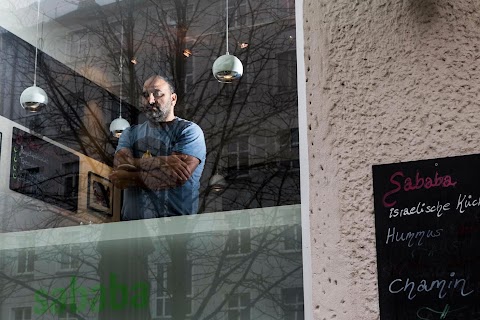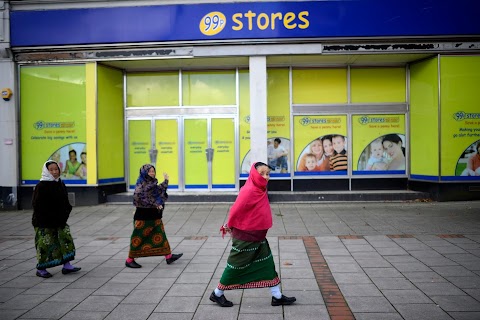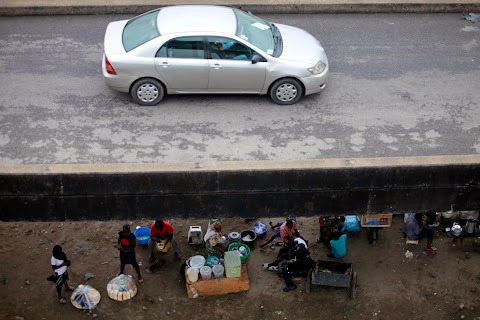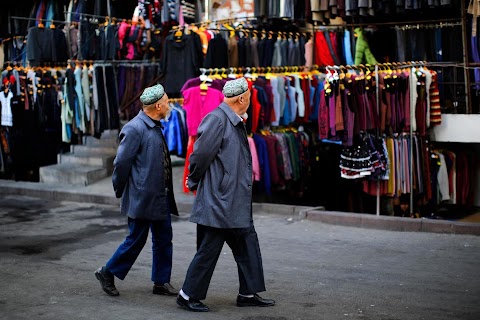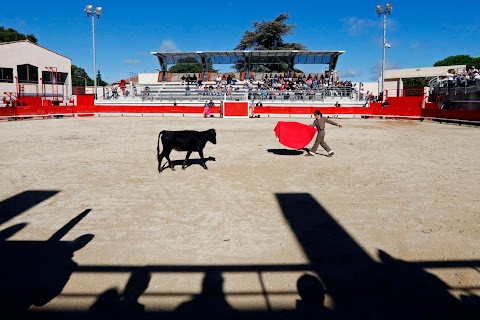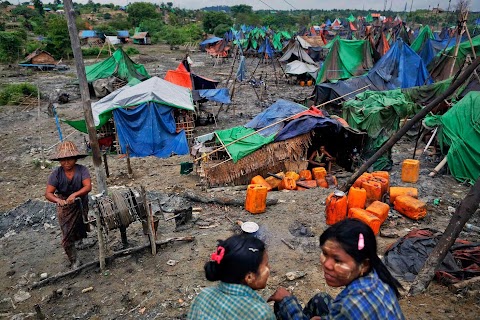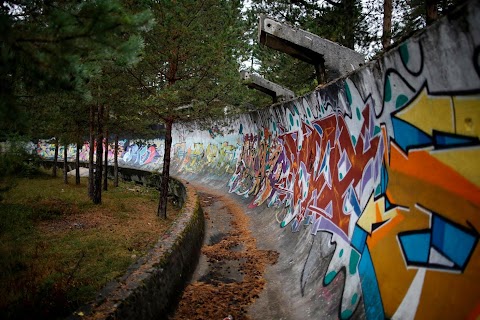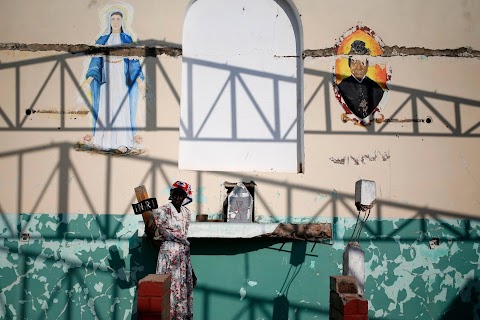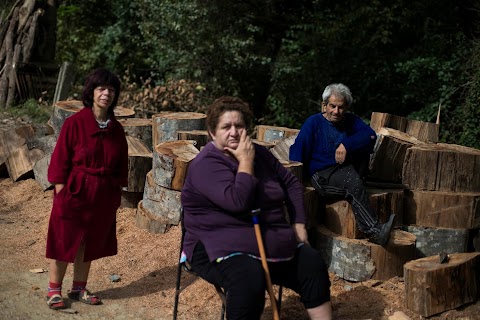
Sochi's struggling locals
 Thomas Peter
Thomas Peter
With a $50-billion price tag, the Sochi Winter Olympics will be an extravagant event, supposed to showcase Russia to the world. Yet for many living in the host city, preparations for the Games have caused more problems than pleasure.
These Sochi residents live on a street where locals say that since the erection of pylons to supply power to Olympic venues, the hillside above their houses has been gradually giving way, triggering damaging landslides.

Tatyana Velikaya is a villager from Akhshtyr, a district of greater Sochi.
Residents there say that their wells have gone dry since the construction of new railway and highway tunnels, and the excavation of a nearby stone quarry, which produces gravel for the construction Winter Games venues.
The problem left locals dependent on water delivered by truck, like the supplies Velikaya uses here to fill up a tank.
"This used to be such a beautiful place. I used to love it, I still love it, but look what has become of it today," she said.

Grigory Topkaryan, another Akhshtyr resident, is reflected in the turbid water of his well.
In addition to their problems with water, locals in the village also say that the construction of new railway and highway tunnels has cut them off from public transport, forcing them to walk a 7km (4 mile) diversion.
"It's not that we want an airport or a stadium in our village," Topkaryan said in an interview, "All we want is basic things - water and a road. We are simple people, we ask for very little."

Elsewhere in Sochi, a house stands severely damaged by a landslide, which struck in 2010.
The accident trapped the building’s inhabitants, who had to be rescued by emergency services, said neighbour Tatiana Skiba.
Skiba blames the event on a dump further up the hill, which is used by a construction company involved in Sochi's pre-Olympic building boom. City authorities deny any connection between the dump and the landslide, she said.

Andrey Martynov poses for a picture near the site of his former property, which now lies within the boundaries of the Olympic Park. The stool he is sitting on is one of his few remaining pieces of furniture.
He says he was first deprived of his land by a real estate agent, who cheated him with fake land-survey documents. During litigation, he ultimately lost his property to the state corporation responsible for building the Olympic Village in Sochi's Adler district.
Martynov was granted temporary shelter at a Soviet-era tourist hostel, where he now shares an eight-square-meter (86-square-foot) room with his wife.
He said he has not received any compensation for his loss and city authorities deny him registration at the hostel, rendering him legally homeless.
Slideshow

A general view shows a stone quarry above the village of Akhshtyr, a district of Sochi. The quarry, one of two above the village, is located in a nature reserve and produces gravel for the construction of 2014 Winter Games venues.

Grigory Topkaryan, a resident of Akhshtyr, is reflected in his car's rear-view mirror as he looks at the construction site of a railway tunnel nearby.

Topkaryan moves the handle of a well that has gone dry since the construction of transport tunnels and the excavation of a quarry near Akhshtyr.

P. Grigoryan, another Akhshtyr resident, talks with a water delivery man bringing supplies to the village.

Saven Topkaryan and his wife Irina receive their weekly delivery of water.

A villager fills up a bathtub in his garden with his water ration for the week.

Sedrak Torosyan (left) and his daughter Margarita (2nd left) rest in front of their home in Ternovaya Street. Locals say they have suffered property damage from landslides since pylons transporting power to Olympic venues were built on the hill above their houses.

Irina Borochkova, another Ternovaya Street resident, sits outside a container where she now lives, after her house was severely damaged by a landslide.

Tatiana Skiba sits between her two houses, both damaged by a landslide on Sochi’s Bakinskaya Street. Skiba blames the accident on a dump used by a company involved in Sochi's pre-Olympic construction boom.

A crack runs along the wall of the house where Skiba now lives. She moved here from the house next door, after the landslide made it uninhabitable. However, this newer house is also sinking on its foundations.

Furniture in Skiba's kitchen stands at a crooked angle after the damage.

Alexei Kravets rummages through belongings he saved from his house after being forcibly evicted in the course of construction work ahead of the Olympics.

Kravets poses on the site of his former property. He battled eviction for over a year until his belongings were thrown into the street and his house demolished in 2012, he said. He added that he has not received compensation, and he has appealed to the European Court of Human Rights to consider his case.

A man walks past an illegal housing development, one of many that have sprung up in the shadow of official competition venues and hotels that are being built for the Games.

Workers remove a window in one such unlawful development. Some 450 illegal buildings have been demolished on court orders since the beginning of 2013, local media reported.

The window of an illegal housing development overlooks the Olympic Park.

A worker watches an excavator demolish an illegal building.

Construction waste piles up in the countryside near Ternovaya Street in Sochi.

A man walks past colourful new apartments that stand out incongruously in the Golubye Dali district of the city.
"Many people with grudges about the Games declined my request for a picture."
“We meant to do better, but it came out as always.”
Everyone in Russia knows this phrase, unintentionally coined by the late prime minister Viktor Chernomyrdin and applicable to an abundance of situations in this country, where official pronouncements of intent are often so far removed from reality that you could cry. Though instead of crying, Russians ruefully utter this aphorism and smile.
In Sochi you hear it very often these days. With less than 100 days left before the start of the 2014 Winter Olympics, the city has entered the finishing straight to complete the venues for an extravaganza that is to showcase a new Russia. A Russia that has shed its shabby post-Soviet coat to welcome the world to Sochi, where the “sea meets the mountains”, where everything that is adorable about Russia will flourish in a sparkling new summer and winter holidaying resort, as official publicity has it.
This aspiration comes at a high cost.
There is of course the $50-billion prize tag, which makes the Sochi Olympics the most expensive Games in history. Some Russians say this money should have been spent on schools, roads or the public health system, all of which are in great need of repairs.
Others say Russia can and should afford it. After all, those dollars come literally flowing out of its oil-rich ground. And with President Vladimir Putin’s personal backing, the country will move heaven and earth to make sure everything will be completed in time.
The people of Sochi don’t have to look to national politics to form an opinion about the Games. Over the last four weeks I have travelled all over the area that stretches some 145 km (90 miles) along the Black Sea coast and spoken to many people from all walks of life. They included homeowners, builders, waiters, shop assistants, taxi drivers, ecologists, farmers – in short, locals who don’t have a financial stake in the Olympics.
Along with most Russians, they were gripped with enthusiasm back in 2007 when Sochi won the right to host the Games. They were hoping for better roads in their neighbourhood, a functioning sewage system, a makeover of the Stalin-era beach and investment in the tourist sector that is a far cry from its Turkish competitor across the Black Sea.
Investors did come, but they have turned the resort town into an urban sprawl, with apartment high-rises springing up all over, massive hotel complexes, and super highways that criss-cross the city but offer few exits for locals to reach their homes.
For five years people here have been coping with cement dust, tossed up day and night by heavy construction machinery, they have watched their houses being demolished, their wells going dry and their streets groaning under perpetual traffic jams while the Olympic venues were being cut into the magnificent Caucasus Mountains.
Many people with grudges about the Games declined my request for a picture. This was not for fear of reprisals, but because they didn’t want to appear un-patriotic; just like everyone else in the country, they want their athletes to do well. And they are still proud that Russia will welcome the world for a festival of sports. They still want the Games to be a success.
But after everything they have been through, many Sochi locals have lost the nerve for even the faintest smile.

A birds-eye view shows the recently completed neighbourhood of Nekrasovka, bordering the 2014 Winter Olympic Park.
